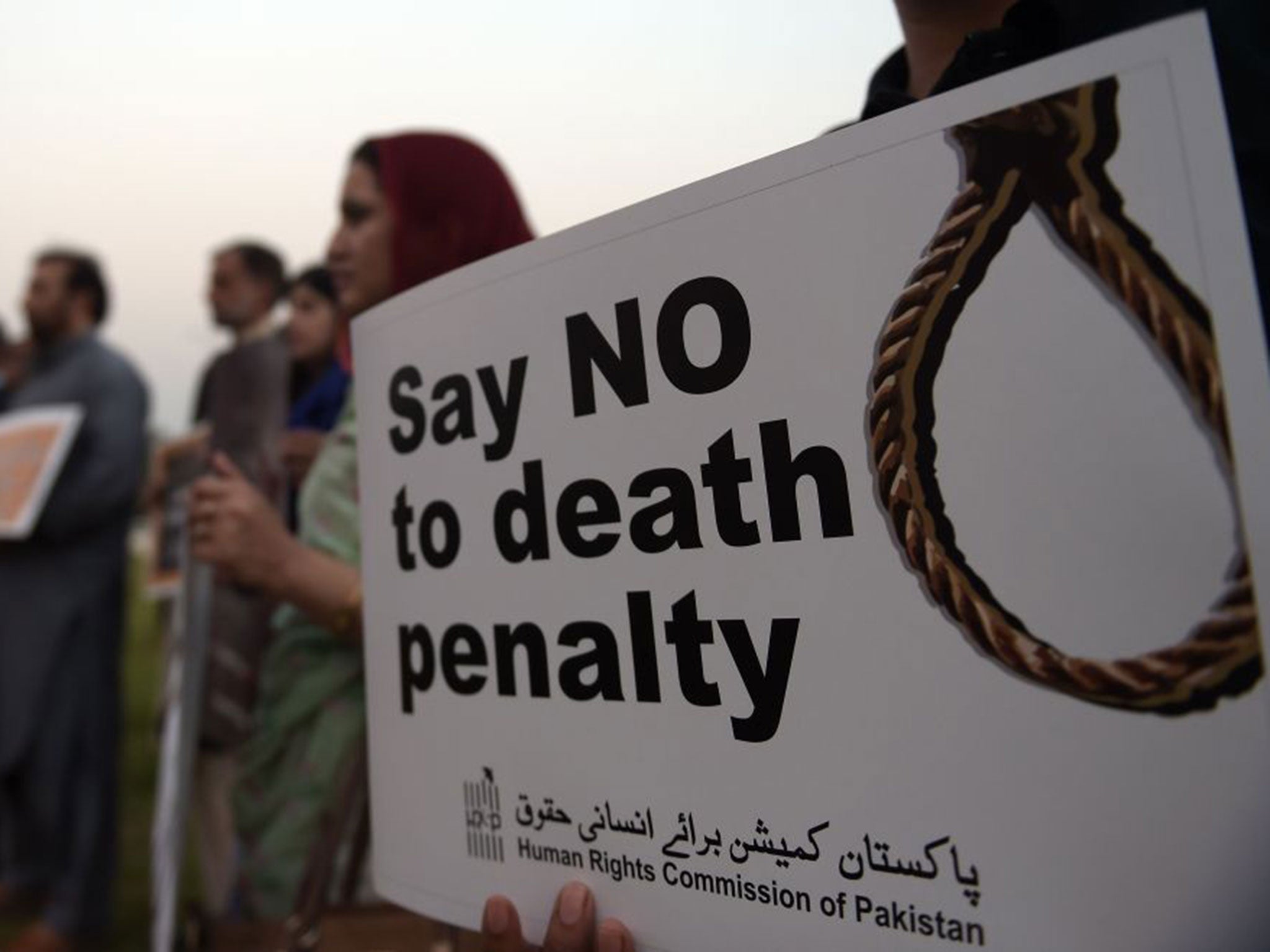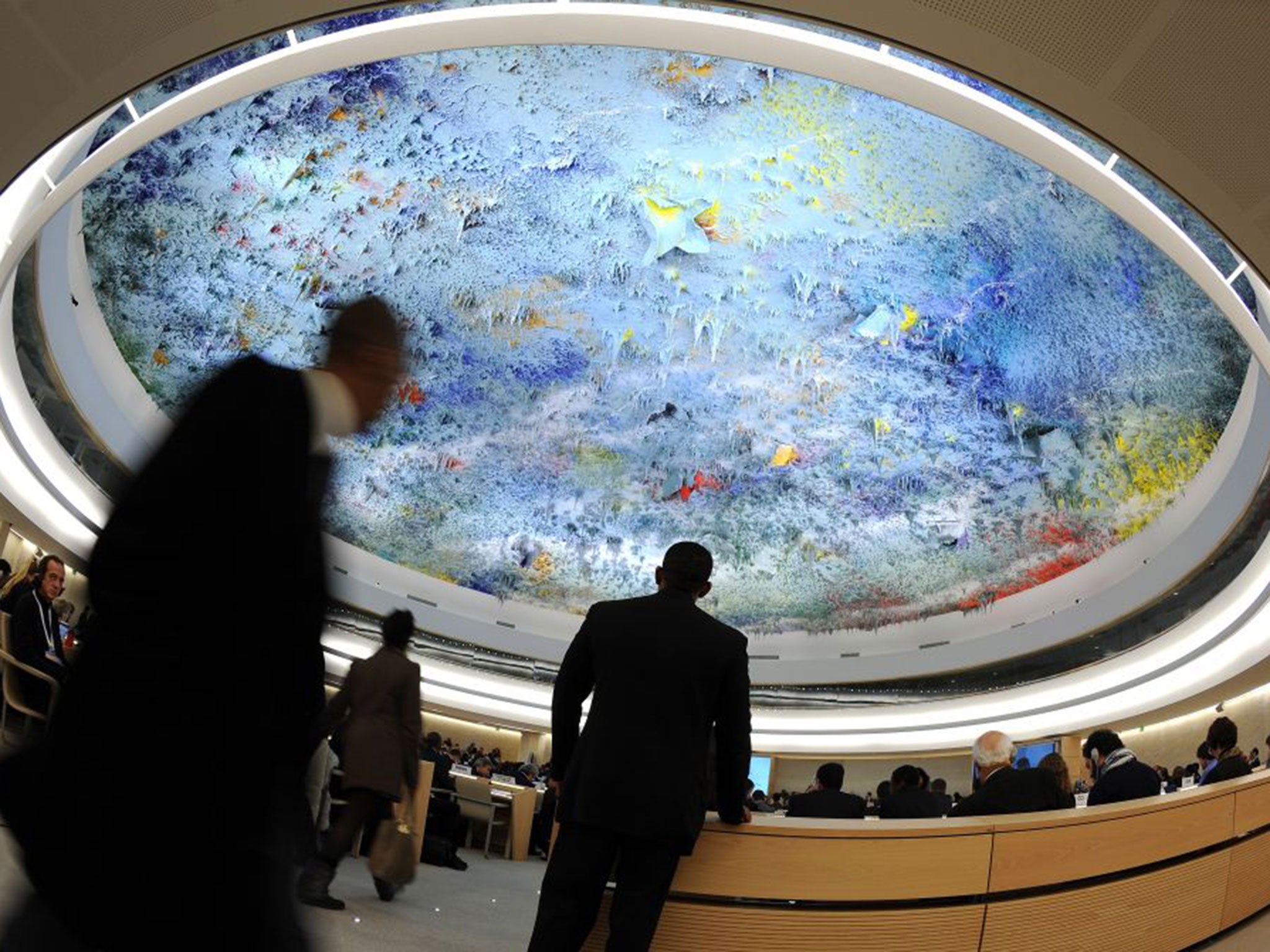Death penalty and torture omitted from Foreign Office re-election bid to Human Rights Council
Campaigners fear the omissions suggest the Government is no longer prioritising the two issues

Your support helps us to tell the story
From reproductive rights to climate change to Big Tech, The Independent is on the ground when the story is developing. Whether it's investigating the financials of Elon Musk's pro-Trump PAC or producing our latest documentary, 'The A Word', which shines a light on the American women fighting for reproductive rights, we know how important it is to parse out the facts from the messaging.
At such a critical moment in US history, we need reporters on the ground. Your donation allows us to keep sending journalists to speak to both sides of the story.
The Independent is trusted by Americans across the entire political spectrum. And unlike many other quality news outlets, we choose not to lock Americans out of our reporting and analysis with paywalls. We believe quality journalism should be available to everyone, paid for by those who can afford it.
Your support makes all the difference.The abolition of the death penalty and the prevention of torture have been omitted from the Government’s official bid for re-election to the UN Human Rights Council, (UNHRC) prompting concerns that the Foreign Office is no longer prioritising the two issues.
In its bid for re-election to the 47-member group, the Government made a series of pledges for the Council’s next term which it said were based on its “priorities at home and abroad” and drew on the UK’s “tradition of democratic and inclusive values”.

They included strengthening human rights, ending violence against women, promoting freedom of religion and taking action on sustainable development – but no mention was made of the Government’s opposition to the death penalty and the use of torture.
One of the country’s leading human rights groups said the omission suggested that the Foreign Office was now routinely dropping references to the two issues from its public documentation – at a time when the UK’s Middle Eastern allies such as Saudi Arabia and Pakistan were regularly executing prisoners.
Over the summer, the Foreign Office said it was in the process of relabelling its six “global thematic priorities”. Previously these included torture prevention and the abolition of the death penalty – but they have since been replaced with three key themes with more vague titles: “democratic values and the rule of law”, “strengthening the rules-based international system” and “human rights for a stable world”.
In her foreword to the UNHRC bid document, Human Rights minister Baroness Anelay of St John’s said the council provided a forum for countries to “discuss some of the most sensitive issues of our day”. International attention has recently focused on Saudi Arabia and the case of Ali al-Nimr, who faces execution for his part in anti-government protests despite being a juvenile when arrested.
The Foreign Secretary, Philip Hammond, told the House of Commons in October that he did “not expect” Mr al-Nimr to be executed by the Saudis. But in a letter written in response to a query about his case a month later, he did not repeat that assertion and instead appeared to concede that the UK’s efforts around the death penalty were now less ambitious. “As it is part of sharia law, we must recognise that total abolition of the death penalty is unlikely in Saudi Arabia in the near future,” he wrote in the letter to human rights group Reprieve. “For now, our focus is on the introduction of EU minimum standards for the death penalty as a first step.”
Despite being one of the UN’s most influential bodies, the UNHRC has been the subject of controversy in the past. Earlier this year, leaked diplomatic cables passed to WikiLeaks suggested that Britain did a vote-swapping deal with Saudi Arabia in 2013 to ensure that both countries were elected as members.
Maya Foa, the head of Reprieve’s death penalty team, said: “If the UK’s seat on the UN Human Rights Council is to mean anything at all in practice, our Government must be prepared to raise issues like the death penalty, regardless of whether this may embarrass countries like Saudi Arabia.
“Unfortunately we’ve seen this government steadily roll back long-standing commitments on capital punishment and pursue deals that risk British complicity with the worst abuses.”
An Foreign Office spokeswoman said: “The UK Government opposes the death penalty in all circumstances and we continue to call on all states to abolish it. Our UN pledges reflect our enduring commitment to promoting universal human rights.”
Human rights: The UN agencies
UN Human Rights Council: An inter-governmental body within the UN, made up of 47 member states including the UK. Members are elected by the UN General Assembly and are responsible for the “promotion and protection of all human rights around the globe”. In September this year it emerged that Faisal bin Hassan Trad, Saudi Arabia’s UN ambassador, had been elected chair of the UNHRC’s panel of diplomats responsible for appointing independent experts. Campaigners described the appointment as “scandalous”.
Office of the UN High Commissioner for Human Rights: The UN agency responsible for spearheading the group’s human rights efforts across the globe. With more than 1,000 staff and a budget of about £117m, it is headed by the High Commissioner for Human Rights, who since September 2014 has been Prince Zeid Ra’ad Zeid al-Hussein, a Jordanian diplomat.
UN Human Rights Committee: A group of 18 independent experts responsible for monitoring civil and political rights around the world. It meets three times a year in Geneva. The UK is represented by Sir Nigel Rodley.
Join our commenting forum
Join thought-provoking conversations, follow other Independent readers and see their replies
Comments